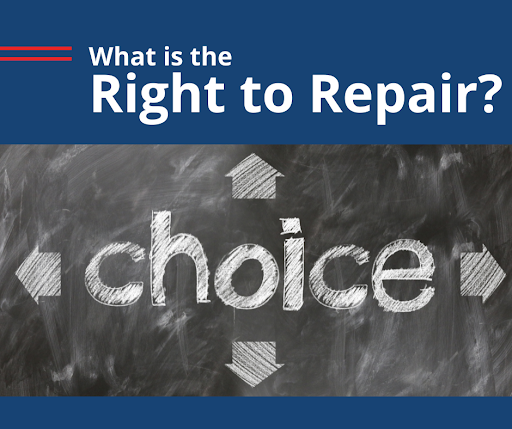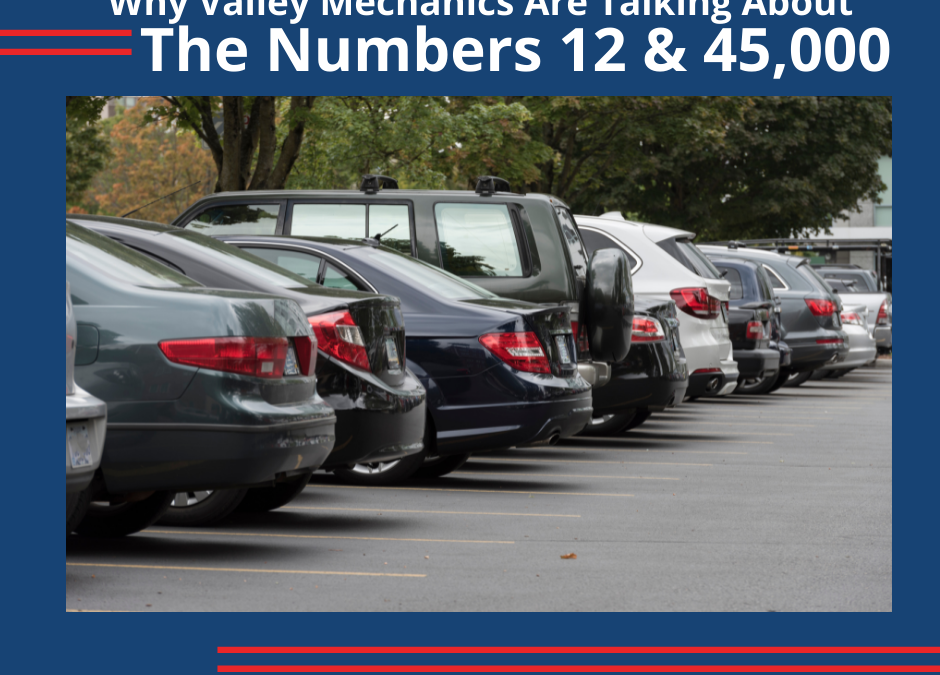When your car needs service or repair, you simply call your local auto repair shop and make an appointment. But, did you know that with some repairs and with some cars, you have no choice but to take it to the dealer?
And, this lack of choice is not just limited to the Auto Repair industry. Some tech companies have also imposed limits on who can repair their broken electronics.
President Biden’s Executive Order signed on July 9th addresses this issue. Dubbed Right to Repair, it aims to limit equipment manufacturers from restricting people’s ability to use independent repair shops or do DIY repairs.
How Do Manufacturers Limit Repair Options For Your Car?
The answer may surprise you. Manufacturers make it VERY difficult for individuals and independent shops to make repairs using a wide range of tactics including:
- Creating intentionally complex product designs
- Using specialized screws
- Excessive use of glue inside of a device, or hard-soldered components
- Limiting the availability of parts, diagnostic tools, and manuals to a manufacturer’s authorized service provider
- Requiring software keys from the manufacturer to reset a device
- Requiring a salvaged part to work only with one specifically identified product
These tactics and more can practically and legally prohibit independent repair shops and individuals from making needed alterations or repairs. But most damning is the following:
- Nearly ALL devices with microchips contain end-user licensing agreements which prevent modification or reverse-engineering. That means this measure legally prohibits independent repair shops or individuals from finding repair workarounds to previous issues.
When you have no choice on who can repair your products, you pay more for the service.
In May 2021, the FTC submitted a report to Congress identifying anti-competitive repair restrictions, parts limitations, and inaccessible software specifically in vehicle manufacturing and mobile phone repair and maintenance.
The report noted that, “there is scant evidence to support manufacturers’ justifications for repair restrictions.”
Except for maybe profit.
Clearly, forcing consumers to work with selected dealerships and manufacturers’ representatives is driving up the prices for services and lining the pockets of manufacturers. After all, competition lowers pricing.
What Happens Next?
The Executive Order is a good starting point, but there is still more that needs to be done. The executive order currently serves as a blueprint for Right to Repair in the automotive industry in the future – but isn’t quite there yet. The FTC will ultimately decide the size and scope of the order.
The Auto Care Association will be meeting with the FTC in the coming months to urge them to engage in rules, procedures, and enforcements, to address Right to Repair issues across all industries including automotive.
All eyes are on the FTC as it navigates the complex and shadowy practices of manufacturers. Time will tell what this ultimately means for your car’s repair options, but this is a step in the right direction.
But, for right now, most of you DO have the choice of who repairs your vehicle. And, customer satisfaction is a prime concern at all NARPRO shops. NARPRO stands for the Neighborhood of Automotive Repair Professionals. We are made up of independent, locally owned, auto repair shops.
We are so confident in our shops, that we guarantee your satisfaction with any repairs performed by a NARPRO-recommended shop up to $7,500. Since 2004, we have never had an unresolved complaint for any NARPRO recommended shop and we also offer free second opinions! If you are not happy with an estimate from a different auto repair shop, bring it to us and we will go over your estimate and vehicle for a free second opinion!
So, if you are looking for an honest mechanic, check out our recommended auto repair shops!
And, if you are wondering what YOU can do to ensure your right to choose where you have your car or electronics repaired, contact your Representatives in Congress and the Senate. Share your opinions with them and let them know, you support the Right to Repair.







